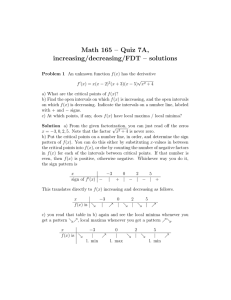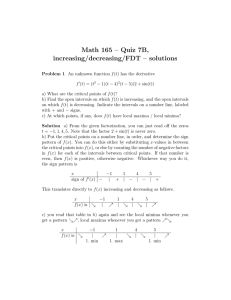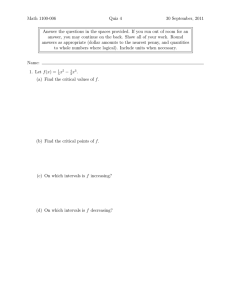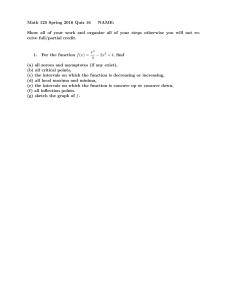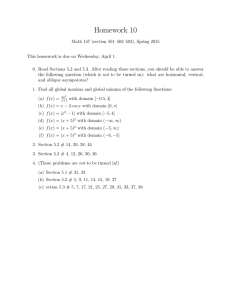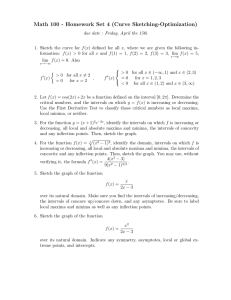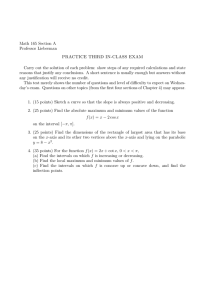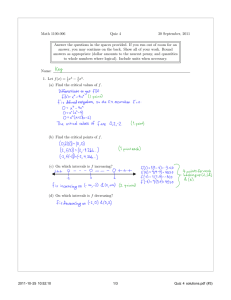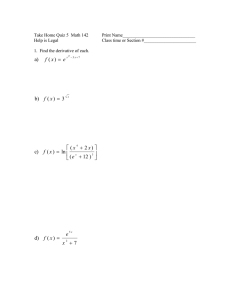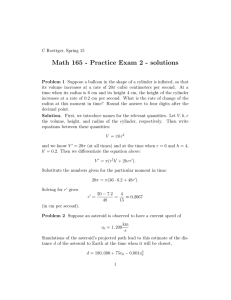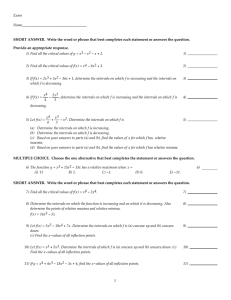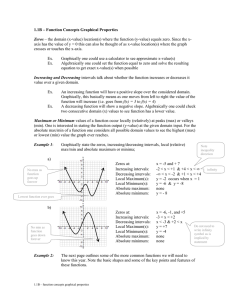Math 165 – Quiz 7D, increasing/decreasing/FDT – solutions
advertisement
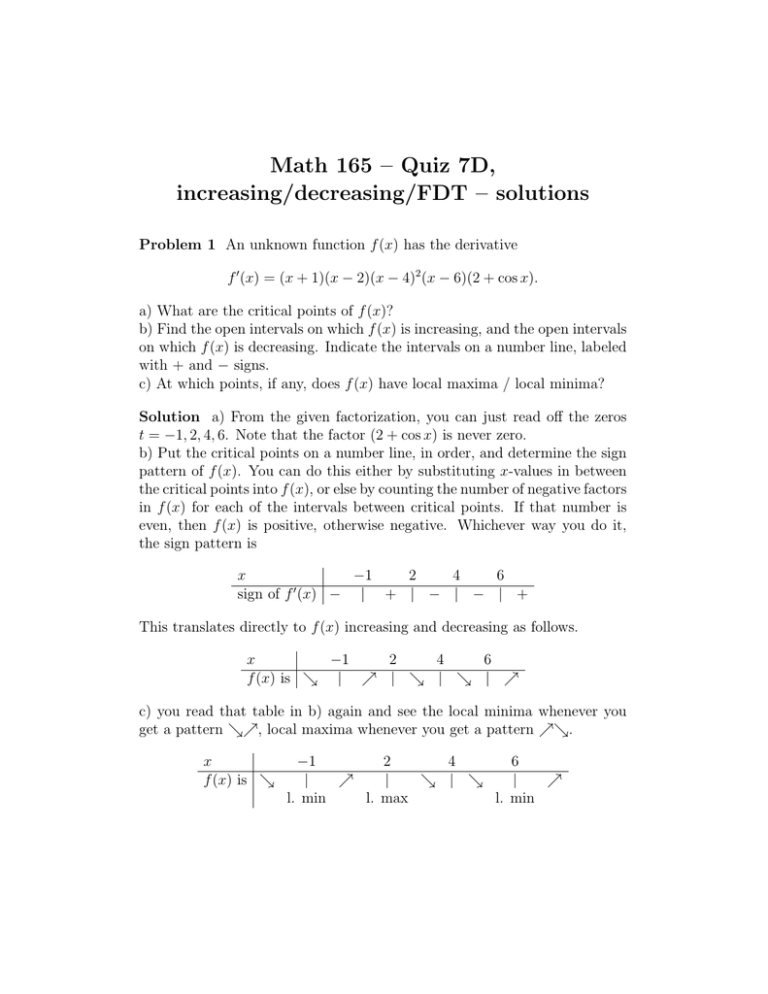
Math 165 – Quiz 7D, increasing/decreasing/FDT – solutions Problem 1 An unknown function f (x) has the derivative f 0 (x) = (x + 1)(x − 2)(x − 4)2 (x − 6)(2 + cos x). a) What are the critical points of f (x)? b) Find the open intervals on which f (x) is increasing, and the open intervals on which f (x) is decreasing. Indicate the intervals on a number line, labeled with + and − signs. c) At which points, if any, does f (x) have local maxima / local minima? Solution a) From the given factorization, you can just read off the zeros t = −1, 2, 4, 6. Note that the factor (2 + cos x) is never zero. b) Put the critical points on a number line, in order, and determine the sign pattern of f (x). You can do this either by substituting x-values in between the critical points into f (x), or else by counting the number of negative factors in f (x) for each of the intervals between critical points. If that number is even, then f (x) is positive, otherwise negative. Whichever way you do it, the sign pattern is −1 2 4 6 x 0 sign of f (x) − | + | − | − | + This translates directly to f (x) increasing and decreasing as follows. x −1 2 4 6 f (x) is & | % | & | & | % c) you read that table in b) again and see the local minima whenever you get a pattern &%, local maxima whenever you get a pattern %&. x f (x) is & −1 2 4 6 | % | & | & | % l. min l. max l. min
